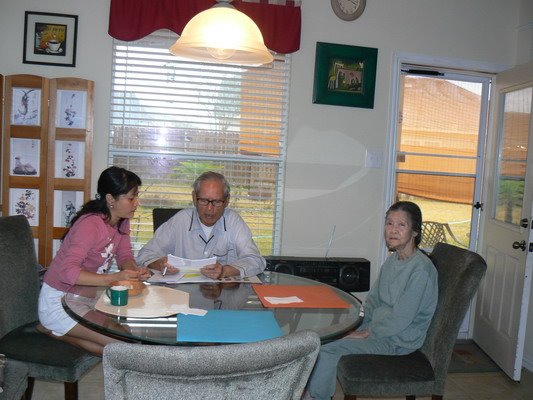[...]
Two Gardens
You have two gardens: your own garden and that of your beloved. First, you have to take care of your own garden and master the art of gardening. In each one of us there are flowers and there is also garbage. The garbage is the anger, fear, discrimination, and jealousy within us. If you water the garbage, you will strengthen the negative seeds. If you water the flowers of compassion, understanding, and love, you will strengthen the positive seeds. What you grow is up to you.
If you don’t know how to practice selective watering in your own garden, then you won’t have enough wisdom to help water the flowers in the garden of your beloved. In cultivating your own garden well, you also help to cultivate her or his garden. Even a week of practice can make a big difference. You are more than intelligent enough to do the work. You need to take your situation in hand and not allow it to get out of control. You can do it. Every time you practice walking mindfully, investing your mind and body in every step, you are taking your situation in hand. Every time you breathe in and know you are breathing in, every time you breathe out and smile to your out-breath, you are yourself, you are your own master, and you are the gardener in your own garden. We are relying on you to take good care of your garden, so that you can help your beloved to take care of hers.
If you have a difficult relationship, and you want to make peace with the other person, you have to go home to yourself. You have to go home to your garden and cultivate the flowers of peace, compassion, understanding, and joy. Only after that can you come to your partner and be patient and compassionate.
When we marry or commit to another person, we make a promise to grow together, sharing the fruit and progress of practice. It is our responsibility to take care of each other. Every time the other person does something in the direction of change and growth, we should show our appreciation.
If you have been together with your partner for some years, you may have the impression that you know everything about this person, but it’s not so. Scientists can study a speck of dust for years, and they still don’t claim to understand everything about it. If a speck of dust is that complex, how can you know everything about another person? Your partner needs your attention and your watering of his or her positive seeds. Without that attention, your relationship will wither.
Excerpted from Thich Nhat Hanh’s Introduction to “Love’s Garden: A Guide to Mindful Relationships,” by Peggy Rowe Ward and Larry Ward. © 2008 by Peggy Rowe Ward and Larry Ward. Introduction © 2008 by Unified Buddhist Church. With permission from Parallax Press, www.parallax.org.
Source: https://www.lionsroar.com/growing-together/







No comments:
Post a Comment